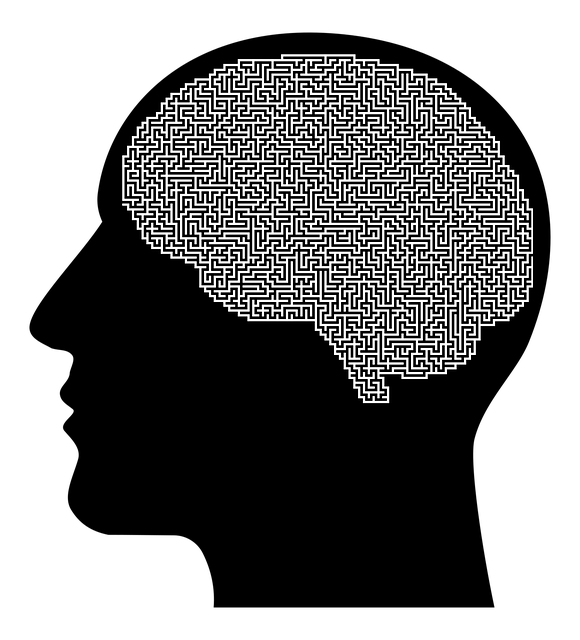In Wheat Ridge, a revolutionary holistic approach to cancer therapy focuses on resilience, fitness, and mental health (RFM framework). This model empowers patients with inner strength to overcome challenges, offering stress management workshops and tailored activities. Through regular sessions, survivors gain tools for survival and thriving during their cancer journey. Resilience building exercises significantly impact patient outcomes, especially in Wheat Ridge Cancer Issues Therapy, improving well-being, reducing anxiety, and contributing to better health and higher quality of life. The innovative initiative includes personalized plans, risk assessments, social skills training, and continuous improvement based on participant feedback.
In the heart of Wheat Ridge, a pioneering approach to cancer care is taking root through the implementation of RFM (Resilience, Flexibility, and Mobility) exercises. This comprehensive framework, tailored for cancer therapy, goes beyond traditional treatments by fostering resilience—a vital asset in navigating the challenges posed by wheat ridge cancer issues. The article explores how resilience-building exercises significantly enhance patient outcomes, offering a detailed guide on integrating this innovative practice into Wheat Ridge’s cancer care approach and practical strategies for designing personalized resilience plans.
- Understanding RFM: A Framework for Cancer Therapy in Wheat Ridge
- The Impact of Resilience Building Exercises on Patient Outcomes
- Integrating RBF into Wheat Ridge's Cancer Care Approach
- Practical Application: Designing Customized Resilience Plans
- Measuring Success and Continuous Improvement Strategies
Understanding RFM: A Framework for Cancer Therapy in Wheat Ridge

In Wheat Ridge, understanding RFM—a framework that integrates resilience, fitness, and mental health—is transforming cancer therapy. This holistic approach recognizes that cancer survival isn’t just about treating the disease; it’s equally about empowering patients with inner strength to navigate the challenges ahead. By incorporating exercises focused on building resilience, this method aims to enhance the overall well-being of individuals facing Wheat Ridge cancer issues.
The RFM model encourages active participation in stress management workshops and organizations, promoting a proactive stance against depression prevention. It fosters a sense of control and empowerment, which is crucial for patients’ mental health. Through regular sessions and activities tailored to individual needs, the RFM framework facilitates the development of inner strength, enabling cancer survivors to not just survive but thrive in their journey.
The Impact of Resilience Building Exercises on Patient Outcomes

Resilience building exercises have been shown to significantly impact patient outcomes, especially for individuals facing challenging health conditions like cancer. These therapeutic interventions focus on enhancing an individual’s ability to cope with stress and adversity, which is crucial in managing the emotional weight often associated with Wheat Ridge Cancer Issues therapy. By integrating various activities that promote Mood Management, Coping Skills Development, and Emotional Intelligence, patients can navigate their treatment journey more effectively.
Research suggests that these exercises not only improve a patient’s overall well-being but also foster a sense of control and empowerment. They equip individuals with valuable coping strategies, allowing them to confront and overcome the challenges posed by cancer care. As a result, patients may experience reduced anxiety, improved mood stability, and enhanced emotional resilience, ultimately contributing to better health outcomes and a higher quality of life during and after treatment.
Integrating RBF into Wheat Ridge's Cancer Care Approach

Wheat Ridge has recognized the significant impact of psychological resilience on cancer patients’ overall well-being and treatment outcomes. Integrating Resilience Building Exercises (RBF) into their cancer care approach is a game-changer, addressing the often-overlooked mental health aspect of this challenging disease. By incorporating RBF, Wheat Ridge aims to empower patients with essential coping skills and social support networks, enhancing their ability to navigate the complexities of cancer diagnosis and treatment.
This initiative focuses on individual therapy sessions where patients engage in activities designed to strengthen resilience, such as cognitive reframing exercises, mindfulness practices, and social skills training. The latter is particularly crucial, as it fosters meaningful connections among patients, promoting peer support and a sense of community. Additionally, risk assessment for mental health professionals plays a vital role in tailoring these exercises to each patient’s unique needs, ensuring that the interventions are effective and safe.
Practical Application: Designing Customized Resilience Plans

When implementing resilience-building exercises, particularly tailored to individuals facing cancer issues, it’s crucial to take a personalized approach. Each person’s journey is unique, and their resilience strategies should reflect this. Therefore, mental health professionals at Wheat Ridge Cancer Issues Therapy design customized resilience plans that address specific needs. This involves a comprehensive risk assessment, factoring in not just physical health but also mental well-being and potential burnout triggers. By considering the individual’s personal history, support systems, and coping mechanisms, therapists can create targeted interventions.
The process begins with an in-depth conversation where patients share their experiences and challenges. This information is then used to develop a tailored plan that might include various exercises like mindfulness practices, stress management techniques, or social connection initiatives. The goal is to empower individuals to navigate their cancer journey with enhanced resilience, ensuring they have the tools to cope with stress, anxiety, and potential burnout—a concern often overlooked in conventional therapy but crucial for long-term mental health awareness.
Measuring Success and Continuous Improvement Strategies

Measuring success is a vital aspect of implementing resilience-building exercises, especially when addressing sensitive topics like cancer support in Wheat Ridge. Evaluating the effectiveness of these programs involves collecting feedback from participants to understand their experiences and perceived benefits. This data can be collected through surveys, interviews, or focus groups, allowing for qualitative and quantitative analysis. By assessing improvements in mental health indicators, such as mood management and stress reduction methods, healthcare providers can gauge the success of the initiatives.
Continuous improvement strategies should then be implemented based on these findings. Adjustments to the program design, duration, or delivery methods may be necessary to better cater to the needs of participants. Incorporating feedback ensures that the resilience-building exercises remain relevant and impactful over time, fostering a supportive environment for those facing cancer issues in Wheat Ridge and enhancing overall well-being through healthcare provider cultural competency training and effective stress reduction techniques.
Resilience-focused interventions, such as Resilience Building Exercises (RBF), offer a promising approach to enhancing patient outcomes in cancer care, particularly within the context of Wheat Ridge’s innovative therapy framework. By integrating RBF into their treatment plans, healthcare providers can empower patients to navigate the challenges of cancer with greater strength and adaptability. The practical application of designing customized resilience plans ensures that each patient receives tailored support, addressing their unique needs. Continuous improvement strategies, combined with robust measurement techniques, are essential to optimizing these exercises’ effectiveness in the fight against Wheat Ridge Cancer Issues.










